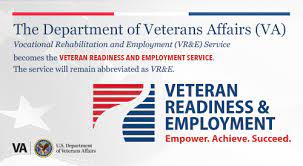Colleges: A Pathway to Success
Colleges are institutions of higher education that provide students with the opportunity to earn a degree or certificate in a variety of fields. They offer a wide range of programs and courses, from liberal arts to technical and vocational training. Attending college can be a life-changing experience, providing students with the skills, knowledge, and credentials they need to succeed in their chosen career.
One of the most significant benefits of attending college is the opportunity to learn from experienced professors who are experts in their field. Professors often have years of experience working in their respective industries, and they can provide students with valuable insights and practical knowledge that can be applied in real-world situations. Additionally, colleges often have state-of-the-art facilities and resources that allow students to gain hands-on experience in their field.
Another benefit of attending college is the opportunity for personal growth and development. College provides an environment where students can explore new ideas, meet new people, and broaden their horizons. It’s a time when students can develop critical thinking skills, learn how to communicate effectively, and gain valuable life skills such as time management and problem-solving.
College also provides opportunities for networking and building relationships that can last a lifetime. Students often form close bonds with classmates who share similar interests or career aspirations. These relationships can lead to internships, job offers, or even business partnerships down the road.
Of course, one of the most significant benefits of attending college is the potential for higher earnings over a lifetime. According to the Bureau of Labor Statistics, individuals with a bachelor’s degree earn on average $468 more per week than those with only a high school diploma. Over time, this difference adds up significantly.
While there are many benefits to attending college, it’s important to note that it’s not for everyone. College requires significant time commitment and financial investment. However, there are many resources available to help make college more accessible, including scholarships, grants, and student loans.
In conclusion, attending college can be a life-changing experience that provides students with valuable skills, knowledge, and credentials. It’s an investment in one’s future that can lead to personal and professional growth, higher earnings potential, and lifelong relationships. If you’re considering college as a pathway to success, take the time to research your options and find the program that’s right for you.
6 Advantages of Attending College: Resources, Faculty, Diversity, Activities, Networking, and Affordability
- Access to a variety of resources
- Experienced faculty
- Diverse student body
- Extracurricular activities
- Networking opportunities
- Affordable tuition costs
Challenges Faced by College Students: High Costs, Time Commitment, and Stressful Environment
Access to a variety of resources
Access to a variety of resources: A Pro of Colleges
Colleges are institutions of higher education that provide students with access to a wide range of resources, such as libraries, laboratories, and other educational materials. These resources can be essential in helping students achieve their academic goals and gain practical experience in their field.
One of the most significant benefits of attending college is the access to libraries. College libraries often have extensive collections of books, journals, and other materials that can be used for research and studying. These resources are often not available to the general public, making them valuable assets for students seeking to expand their knowledge and understanding.
In addition to libraries, colleges also provide access to laboratories and other educational materials. These resources are particularly useful for students studying science, technology, engineering, and mathematics (STEM) fields. Laboratories provide hands-on experience in conducting experiments and applying theoretical concepts in real-world situations.
Furthermore, colleges often offer specialized equipment and software that students may not have access to otherwise. For example, graphic design students may have access to high-end software programs that they would not be able to afford on their own.
Access to a variety of resources is a significant pro of attending college because it provides students with the tools they need to succeed academically and professionally. It also allows them to gain practical experience that can be applied directly in their chosen field.
In conclusion, attending college provides students with access to a wide range of resources that can be essential in achieving academic success and gaining practical experience. Libraries, laboratories, specialized equipment, and software are just some examples of the many resources available at colleges. If you’re considering attending college or are already enrolled, take advantage of these resources as much as possible – they’re there for your benefit!
Experienced faculty
Experienced Faculty: The Key to Success in College
One of the most significant advantages of attending college is the opportunity to learn from experienced faculty members who are experts in their respective fields. Colleges employ professors who have years of experience working in their industries, and they can provide students with valuable insights and practical knowledge that can be applied in real-world situations.
Experienced faculty members bring a wealth of knowledge and expertise to the classroom. They have often worked in their fields for many years, and they understand the nuances and complexities of their industry. This allows them to provide students with a unique perspective that cannot be gained from textbooks or lectures alone.
Additionally, experienced faculty members are often well-connected within their industries. They may have relationships with employers or other professionals that can lead to internships, job offers, or other opportunities for students. This networking potential can be invaluable for students who are looking to launch a successful career after graduation.
Moreover, experienced faculty members are often passionate about teaching and mentoring students. They take pride in helping students achieve their goals and succeed in their chosen fields. They are available to answer questions, provide guidance, and offer support as needed.
In conclusion, experienced faculty members are a key component of a successful college education. They bring a wealth of knowledge and expertise to the classroom, provide valuable networking opportunities for students, and are passionate about mentoring the next generation of professionals. If you’re considering attending college, take the time to research the faculty members at prospective schools and find those who align with your interests and career goals.
Diverse student body
Diverse Student Body: A Key Benefit of Attending College
One of the most significant benefits of attending college is the opportunity to interact and learn from people from different backgrounds and cultures. Colleges attract students from all over the world, creating a diverse student body that fosters a rich learning environment.
Interacting with people from different backgrounds and cultures can broaden one’s horizons and help develop a greater understanding and appreciation for diversity. Students can learn about different customs, traditions, and beliefs, which can help them become more open-minded and empathetic individuals.
In addition to promoting diversity, a diverse student body also creates opportunities for networking and building relationships that can last a lifetime. Students can form close bonds with classmates who share similar interests or career aspirations but come from very different backgrounds. These relationships can lead to internships, job offers, or even business partnerships down the road.
Moreover, colleges often have clubs and organizations that cater to specific cultural groups or interests. These groups provide students with opportunities to connect with like-minded individuals who share their values and passions.
Overall, a diverse student body is a key benefit of attending college. It provides students with an enriching learning experience that promotes empathy, understanding, and appreciation for diversity. If you’re considering college as a pathway to success, take advantage of the opportunity to interact with people from different backgrounds and cultures – it may just be one of the most rewarding experiences you’ll have during your college years.
Extracurricular activities
Extracurricular Activities: A Pathway to Personal Growth
Colleges offer a wide range of extracurricular activities that can help students develop skills outside the classroom and explore new interests. These activities provide students with opportunities to engage in leadership, community service, sports, clubs, and organizations. Participating in extracurricular activities can be a great way to make new friends, learn new skills, and enhance personal growth.
Extracurricular activities provide students with opportunities to develop leadership skills. Whether it’s leading a club or organization, organizing a fundraiser or event, or serving as a team captain, these experiences can help students develop critical leadership skills such as communication, decision-making, and problem-solving.
Community service is another important aspect of extracurricular activities. Many colleges offer volunteer opportunities that allow students to give back to their communities while developing empathy and compassion for others. Community service can also be an excellent way for students to gain practical experience in their field of study.
Sports are another popular extracurricular activity offered by colleges. Participating in sports can help students develop teamwork skills and improve physical health. It’s also an excellent way for students to relieve stress and build self-confidence.
Clubs and organizations are another great way for students to explore new interests and meet like-minded individuals. Colleges offer a wide range of clubs and organizations that cater to various interests such as music, art, politics, religion, and more.
In conclusion, extracurricular activities are an essential part of the college experience that can help students develop skills outside the classroom while exploring new interests. These activities provide opportunities for personal growth in areas such as leadership development, community service involvement, sports participation, and club membership. If you’re considering attending college or are already enrolled in college but haven’t yet explored extracurricular activities available on campus – take advantage of these opportunities! They may just lead you down a path to personal growth and success.
Networking opportunities
Networking Opportunities: A Key Benefit of Attending College
Attending college provides students with more than just an education. It also offers the opportunity to network with peers and professionals in their field of study or related industries. Networking can be a key factor in securing future job prospects or internships.
College is a melting pot of individuals from diverse backgrounds and experiences. By attending college, students have the opportunity to meet people with similar interests and career aspirations, which can lead to valuable connections in the future. In addition, colleges often host events such as career fairs, guest lectures, and alumni networking events that allow students to connect with professionals in their field.
Networking can also provide students with valuable insights into their chosen industry. By speaking with professionals who have experience working in the field, students can gain a better understanding of what it takes to succeed and what skills are necessary for success. This information can help students tailor their education and experience to better prepare for their future careers.
Furthermore, networking can lead to internship opportunities that provide hands-on experience in a student’s chosen field. Internships are often a requirement for graduation, but they also offer valuable experience that can set a student apart from other job candidates after graduation.
In conclusion, attending college provides students with many benefits beyond just an education. Networking opportunities are one such benefit that can be invaluable for future job prospects or internships. By meeting peers and professionals in their field of study or related industries, students can gain valuable insights into their chosen industry and make connections that may prove beneficial throughout their careers.
Affordable tuition costs
Affordable Tuition Costs: A Pro of Colleges
For many people, the cost of higher education can be a significant barrier to pursuing their dreams. However, one of the pros of colleges is that they often offer affordable tuition costs compared to private universities. This makes them accessible for more people who want to pursue higher education without breaking the bank.
Many colleges are funded by state governments or receive federal funding, which allows them to offer lower tuition rates. Additionally, community colleges and trade schools often have lower tuition costs than four-year universities, making them an excellent option for those looking for a more affordable way to earn a degree or certificate.
Affordable tuition costs can make a significant difference in the lives of students and their families. It can reduce the burden of student loan debt and allow students to focus on their studies rather than worrying about how they will pay for their education.
Furthermore, attending college with affordable tuition costs does not mean sacrificing quality education. Many public colleges and universities have excellent academic programs and highly qualified professors who are dedicated to providing students with a top-notch education.
In conclusion, affordable tuition costs are a significant pro of colleges. They allow more people to pursue higher education without incurring substantial debt or financial hardship. If you’re considering attending college but are worried about the cost, research your options carefully and consider public colleges or community colleges that offer lower tuition rates. With dedication and hard work, you can achieve your educational goals without breaking the bank.
High Costs
High Costs: A Major Con of Attending College
While attending college can provide many benefits, one of the most significant drawbacks is its high cost. College tuition fees have been rising steadily in recent years, making it increasingly difficult for students to afford higher education. In addition to tuition fees, students are also faced with the costs of textbooks, housing, transportation, and other expenses that can quickly add up.
For many students and families, the high costs associated with attending college can be a major barrier to entry. Students from low-income families may find it particularly challenging to afford college, which can limit their opportunities for upward mobility.
Furthermore, the high cost of attending college can lead to significant levels of student debt. Many students take out loans to finance their education and end up with large amounts of debt upon graduation. This debt can take years or even decades to pay off and can limit a person’s ability to achieve financial stability or pursue other goals such as buying a home or starting a business.
Despite these challenges, there are ways for students to manage the costs associated with attending college. Scholarships and grants are available for those who qualify and can help offset tuition fees and other expenses. Additionally, some colleges offer work-study programs that allow students to earn money while gaining valuable work experience.
In conclusion, while attending college can provide many benefits such as personal growth and higher earnings potential, its high cost is a significant con that cannot be ignored. It’s essential for students and families to carefully consider their options when it comes to financing higher education and explore all available resources before making a decision. With careful planning and financial management strategies in place, however, it’s possible for students from all backgrounds to pursue their dreams of higher education despite the high costs involved.
Time Commitment
Time Commitment: A Major Con of College Education
While there are many benefits to attending college, there are also some cons that should be considered. One of the most significant drawbacks to college education is the time commitment required to complete courses successfully.
College courses typically require a significant amount of time and dedication from students. This includes attending lectures, completing assignments, studying for exams, and participating in group projects. For many students, balancing these demands with work or other responsibilities can be challenging.
Moreover, college programs often require several years to complete, depending on the degree or certificate being pursued. This means that students must commit to a long-term plan and remain dedicated throughout the entire process.
The time commitment required for college education can also be financially burdensome. Many students must work part-time or even full-time jobs while attending school to support themselves financially. This can add an additional layer of stress and difficulty to an already challenging academic workload.
However, despite the challenges associated with time commitment in college education, it’s important to remember that the rewards can be significant. A college degree or certificate can open doors to higher-paying jobs and increased opportunities for career advancement.
In conclusion, while the time commitment required for college education is a major con that should be considered when making decisions about higher education, it’s important not to discount the potential benefits it can provide. With careful planning and dedication, students can successfully navigate their academic workload while still achieving their long-term goals.
Stressful Environment
Stressful Environment: The Pressure to Perform Academically in College
College is often touted as a time of personal and academic growth, but it can also be a stressful environment for students. The pressure to perform academically can be intense, leading to high levels of stress that can have negative impacts on mental and physical health.
The academic demands of college are often much higher than those of high school. Students are expected to manage their time effectively, complete assignments on time, and maintain good grades. This pressure can lead to a constant state of stress and anxiety that can affect sleep patterns, eating habits, and overall well-being.
In addition to academic pressures, there are also social pressures in college. Students may feel the need to fit in with their peers or participate in extracurricular activities to build their resumes. This pressure can lead to feelings of overwhelm and burnout.
While some level of stress is normal in college, excessive stress can have negative consequences. Chronic stress has been linked to a variety of health problems, including depression, anxiety disorders, and cardiovascular disease.
It’s important for students to prioritize self-care and seek support when needed. Many colleges offer counseling services or other resources that can help students manage stress levels. Additionally, practicing healthy habits such as regular exercise, healthy eating habits, and getting enough sleep can help reduce the impact of stress on the body.
In conclusion, while college offers many benefits such as personal growth and career opportunities, it’s important for students to recognize the potential for a stressful environment. By prioritizing self-care and seeking support when needed, students can navigate the pressures of college while maintaining good mental and physical health.




